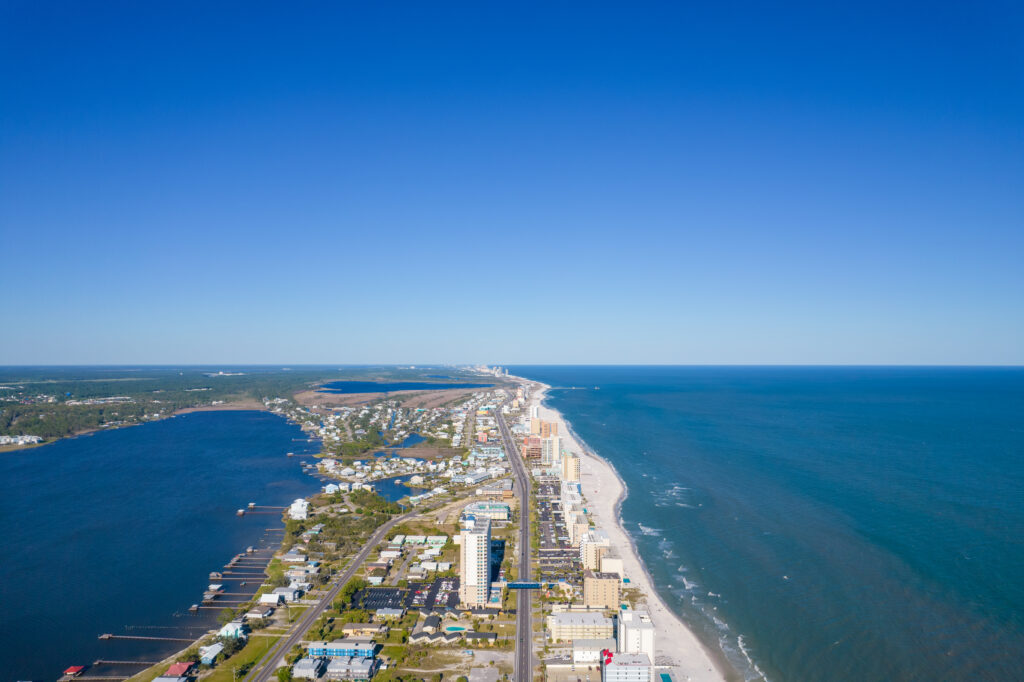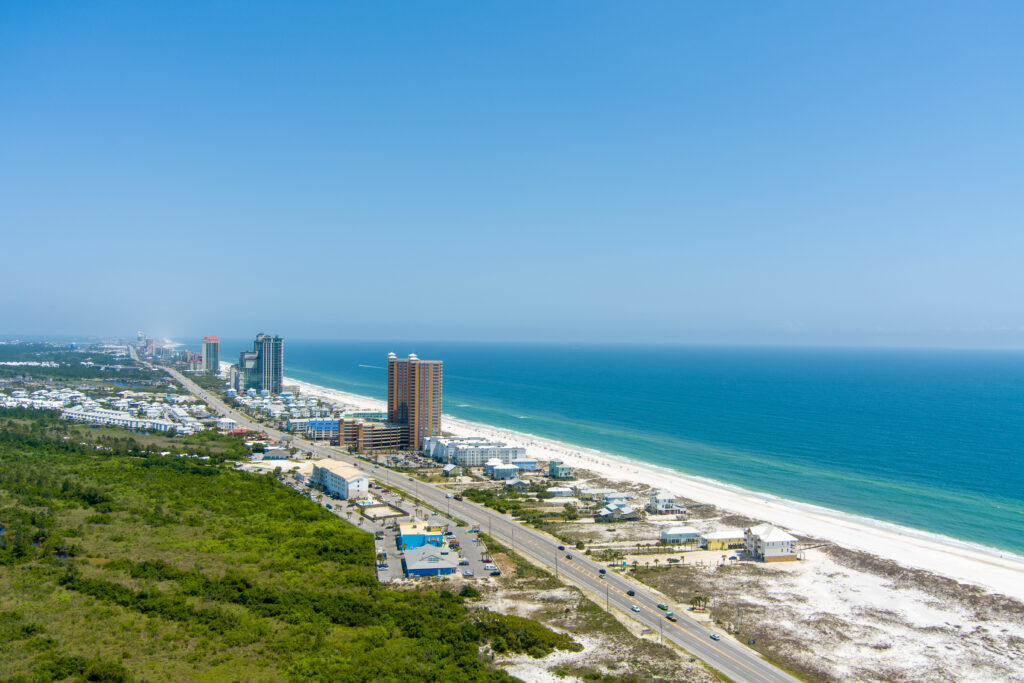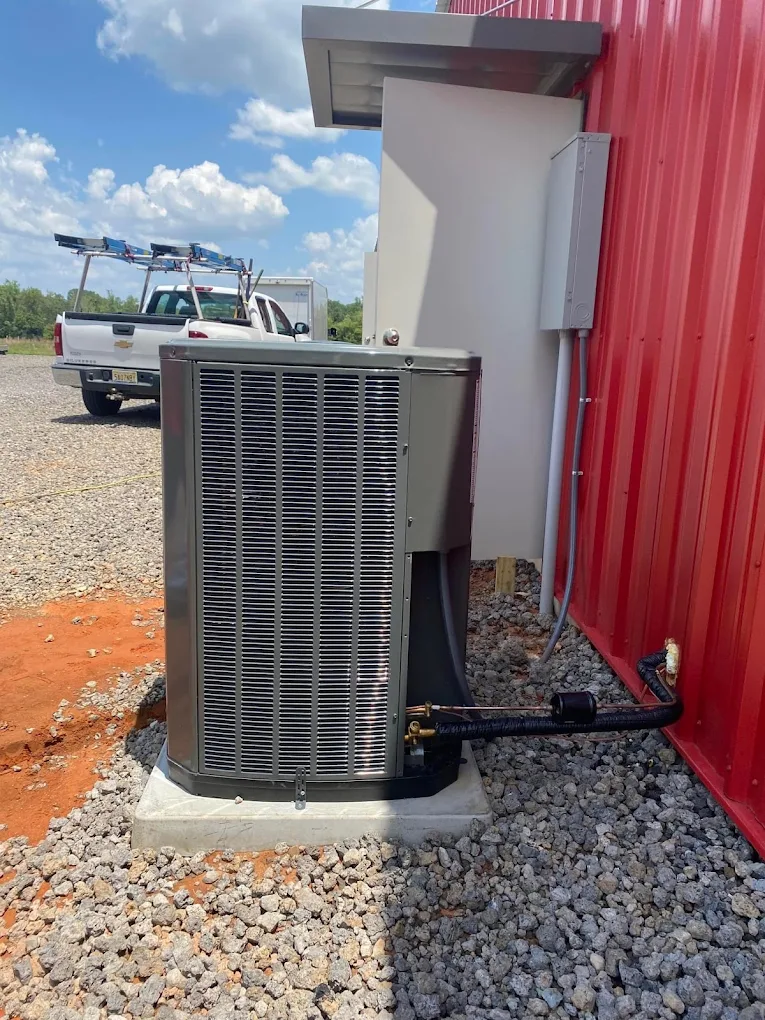How Salt Air Impacts Your HVAC System on the Gulf Coast
Living on the Alabama Gulf Coast is a dream for many. It is a life defined by beautiful white-sand beaches, the soothing sound of the waves, and the ever-present, refreshing breeze coming in off the water. This idyllic coastal environment, however, comes with a hidden and relentless challenge for homeowners. That same salty sea breeze that we love is constantly waging a silent war on the most expensive and essential appliance in a Gulf Shores home: the heating, ventilation, and air conditioning (HVAC) system.
The air in our coastal communities is saturated with microscopic salt particles and a high level of moisture. This combination creates a highly corrosive atmosphere that can dramatically shorten the lifespan and cripple the efficiency of a standard HVAC unit. Understanding how this unique environment impacts your system and learning the proactive steps you can take to combat its effects are essential for protecting your significant home comfort investment.
How Salt Air Causes Corrosion
To understand the threat your HVAC system faces, it is important to understand the basic science of corrosion. When the humid, salt-laden air from the Gulf of Mexico continuously blows across the metal components of your outdoor air conditioning unit, it creates the perfect conditions for a rapid electrochemical reaction. The salt and moisture act as an electrolyte, accelerating the process of oxidation, more commonly known as rust and corrosion, at a rate far faster than in drier, inland areas.
Think of the difference between leaving a metal garden tool out in the rain in a landlocked state versus leaving that same tool near the beach. The tool near the beach will show signs of deep rust in a fraction of the time. This same aggressive, accelerated corrosion is happening to your HVAC system every single day. Every metal part of your outdoor unit, from the outer steel cabinet and the screws that hold it together to the critical and delicate coil, is under this constant attack.
The Primary Victim: The Outdoor Condenser Coil
The component that is most vulnerable to and most critically damaged by salt air corrosion is the outdoor condenser coil. This vital part of your air conditioner is a large, radiator-like grid made up of hundreds of paper-thin aluminum fins that are bonded to a network of copper tubing. The sole purpose of this coil is to release all the heat that has been collected from inside your home into the outside air. The performance of your entire system hinges on the coil’s ability to do this job effectively.
The corrosive process on the coil is particularly destructive. The salt particles from the air settle on the delicate aluminum fins. The constant presence of moisture then creates a reaction known as galvanic corrosion, an accelerated process that occurs when two different metals (in this case, the aluminum fins and the copper tubing) are in contact in the presence of an electrolyte. This reaction causes the aluminum fins to weaken, crumble, and turn into a white, powdery aluminum oxide.
As the fins corrode and fall away, the coil loses its ability to transfer heat. This forces the system’s compressor to run for much longer and at higher pressures to try and cool your home, leading to sky-high energy bills and placing an immense strain on the equipment. Eventually, the corrosion can eat through the copper tubing itself, causing the refrigerant to leak out. A severely corroded coil is one of the most expensive failures an HVAC system can have, often necessitating a full replacement of the entire outdoor unit.
Beyond the Coil: Widespread System Damage
While the condenser coil is the most critical point of failure, the corrosive salt air attacks every exposed metal component of your outdoor unit, leading to widespread degradation that can affect both its performance and its structural integrity.
The protective, baked-on paint finish of the outer steel cabinet is designed to be durable, but the constant bombardment of salty air can eventually cause it to chip and peel. Once the bare metal is exposed, rust will quickly take hold. This not only looks unsightly but can also weaken the cabinet over time, leaving the sensitive internal components more exposed to the elements.
Noticing damage to your air conditioning unit? Click here to learn more about our repair service.
The smaller metal components are often the first to show signs of trouble. The screws and bolts that hold the unit together can rust and seize, making future service and repairs much more difficult for a technician. The protective metal fan guard on the top of the unit can rust through and break apart, creating a serious safety hazard. Even the internal components are not entirely safe. The constant salty moisture can work its way into the unit, corroding electrical terminals on the fan motor, the capacitor, and the contactor. These corroded connections can lead to intermittent problems and eventual system breakdowns.
How to Protect Your Coastal HVAC System
Living in a coastal environment means you have to take a special, proactive approach to protecting your HVAC system. The most important and simplest step any Gulf Shores homeowner can take is to regularly and gently rinse down their outdoor unit with fresh water from a garden hose. This simple act, performed every few weeks, helps to wash away the corrosive salt deposits before they have a chance to bond to the metal and cause severe damage. It is crucial to use a gentle spray and to never use a power washer, as the high pressure can easily bend and damage the delicate coil fins.
While regular rinsing is helpful, it cannot replace the need for consistent professional maintenance. An annual HVAC tune-up is non-negotiable for any coastal system. A certified technician from Wynn Creek AC will perform a deep and safe cleaning of the condenser coil using specialized, non-corrosive, and non-acidic cleaning agents that are designed to remove salt and grime without harming the delicate aluminum.
Want help maintaining your heat pump? Click here to learn more.
For the ultimate level of protection, homeowners should strongly consider investing in specialized coastal-rated HVAC systems. Several manufacturers now offer units that are specifically designed and built for corrosive environments. Additionally, aftermarket protective coatings can be professionally applied to the coils of a new unit. These epoxy or polymer coatings create a durable, waterproof barrier over the coil, preventing the salt and moisture from ever making direct contact with the metal.
Choosing the Right Equipment for a Gulf Shores Home
When it comes time to replace your HVAC system, working with a knowledgeable local contractor who understands the unique demands of our coastal environment is paramount. A contractor from an inland area may not be aware of or recommend the specialized equipment that is essential for a long service life in Gulf Shores.
These specially designed coastal units are built from the ground up to resist corrosion. They often feature a composite, rust-proof base pan instead of a traditional metal one. Their outer cabinets may have louvered panels that offer better protection for the coil and are finished with a more advanced, salt-spray-tested paint. Most importantly, their condenser coils are often constructed with corrosion-resistant technologies, such as copper fins instead of aluminum or fins that have been coated with a protective layer right at the factory.
In need of a new air conditioning unit? Click here to learn more.
While a coastal-rated unit may have a higher upfront cost than a standard model, it is an incredibly wise investment. Its ability to withstand the corrosive salt air can dramatically extend its operational lifespan, saving you from the enormous expense of a premature system replacement. The enhanced durability and sustained efficiency of these units make them the most cost-effective choice in the long run for any home on the Gulf Coast.
Living on the Gulf Coast is a wonderful experience, but it requires that we take special care of the homes and equipment that we rely on. The beautiful sea breeze is a powerful and relentless force that can quickly destroy a standard HVAC system that is not properly protected and maintained.
The keys to a long and efficient life for your coastal HVAC system are a combination of diligent homeowner care, consistent professional maintenance, and, most importantly, choosing the right corrosion-resistant equipment from the very start. By taking a proactive approach, you can ensure your system remains a reliable source of comfort for many years to come. If you have concerns about the impact of the salt air on your current system, or if you are considering a new installation, we encourage you to contact the local experts at Wynn Creek AC. We can provide a thorough inspection and the specialized solutions needed to protect your HVAC investment in our beautiful Gulf Shores community.






